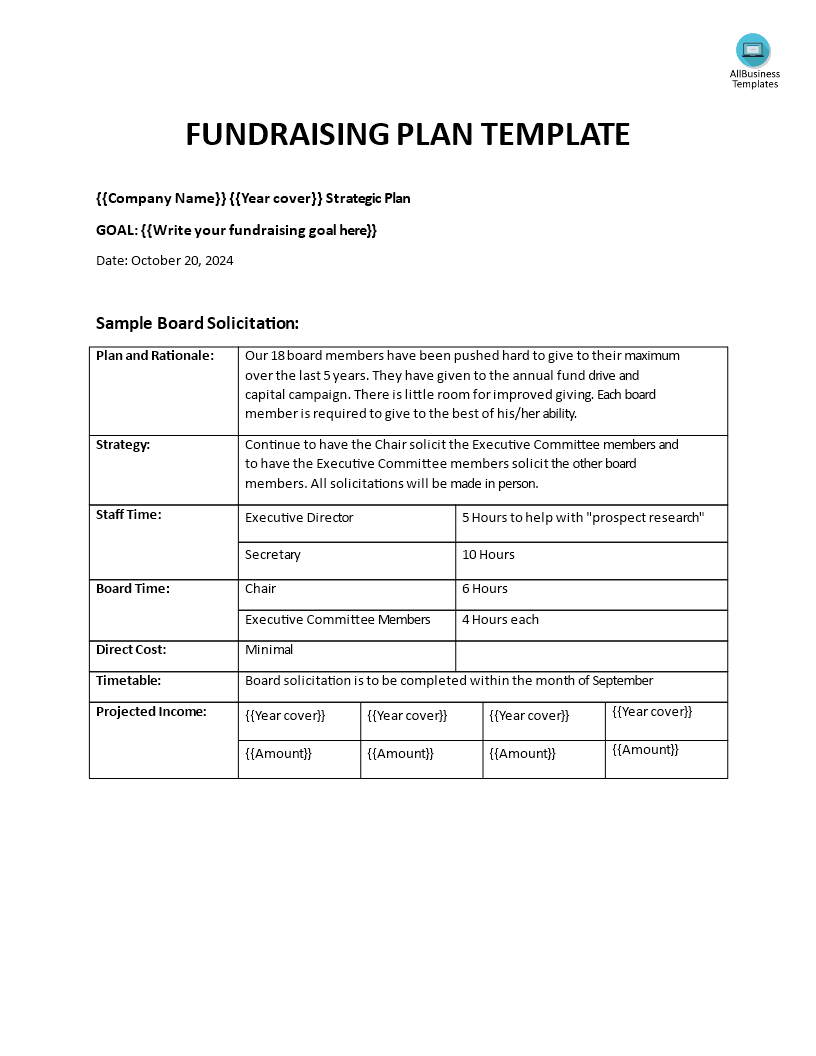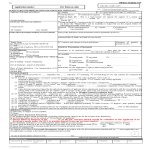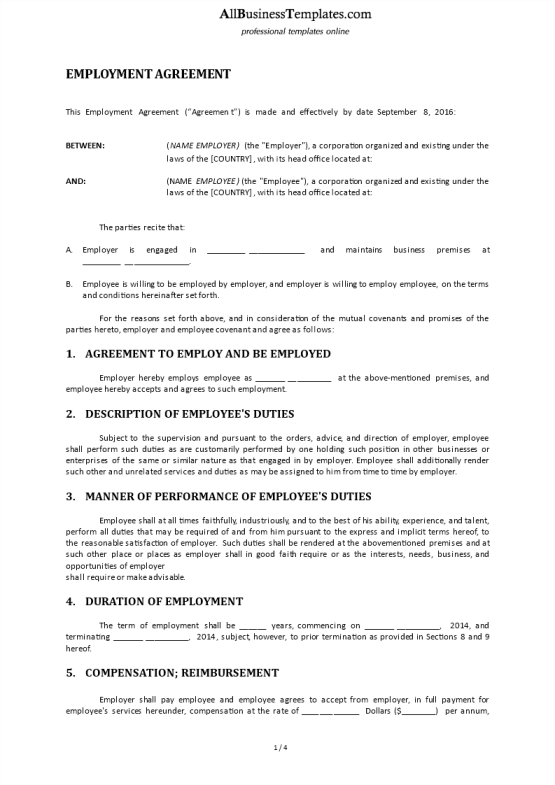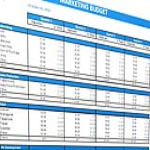Sample Fundraising Plan
Save, fill-In The Blanks, Print, Done!

Download Sample Fundraising Plan
Microsoft Word (.docx)Or select the format you want and we convert it for you for free:
- This Document Has Been Certified by a Professional
- 100% customizable
- This is a digital download (31.54 kB)
- Language: English
- We recommend downloading this file onto your computer.
How to Format a Successful Fundraising Plan?
Creating a comprehensive fundraising plan is key to the success of any nonprofit event. This document not only sets your financial goals but also lays out the strategy, timeline, and resources needed to achieve them. When writing your Fundraiser Event Plan, ensure you cover the following aspects to stay organized and on track:
Key Sections to Include:
- Goal: Clearly state the financial goal for the fundraiser. This should align with your organization’s mission and the specific purpose of the event. What is the total amount of funds you aim to raise?
- Event Description: Provide a detailed plan of the event. Include the purpose, target audience, and type of event (e.g., gala, auction, online campaign). What is the event, and how does it connect to your overall fundraising strategy?
- Strategy: Outline how you will execute the event. Consider marketing approaches, solicitation efforts, and volunteer or staff involvement. What steps will you take to reach your fundraising goal? What platforms, resources, and people will you engage?
- Target Donor Group: Identify your primary audience for the fundraiser, such as individual donors, corporate sponsors, or local businesses. Who are the primary donors, and how will you engage them?
- Volunteer and Staff Roles: Assign responsibilities to staff members, volunteers, and board members. Specify their tasks and the time commitment required. Who is responsible for what tasks, and how many hours will be needed?
- Budget: Break down the event's expenses, including venue costs, catering, marketing, entertainment, and any other costs that may arise. Include an estimated income and cost projections. What are the estimated expenses, and how will they impact your fundraising goal?
- Timeline: Set up a timetable for event planning. This should include deadlines for key activities, such as sponsorship solicitation, ticket sales, marketing launch, and the event day. What are the critical milestones, and when do they need to be completed?
- Donor Stewardship: Include a plan for following up with donors after the event to ensure continued engagement. How will you thank your donors and keep them engaged for future events?
- Key Performance Indicators (KPIs): Outline the metrics you’ll track to measure the success of the event, such as the total funds raised, new donor acquisition, and donor retention rate. What metrics will define the success of this fundraising event?
By answering these questions and including these elements in your fundraising plan, you can create a clear roadmap for success, ensuring that your event reaches its full potential.
Download our Fundraising Plan Template today to streamline your event planning process!
DISCLAIMER
Nothing on this site shall be considered legal advice and no attorney-client relationship is established.
Leave a Reply. If you have any questions or remarks, feel free to post them below.
Related templates
Latest templates
Latest topics
- Excel Templates
Where do I find templates for Excel? How do I create a template in Excel? Check these editable and printable Excel Templates and download them directly! - GDPR Compliance Templates
What do you need to become GDPR compliant? Are you looking for useful GDPR document templates to make you compliant? All these compliance documents will be available to download instantly... - Google Docs Templates
How to create documents in Google Docs? We provide Google Docs compatible template and these are the reasons why it's useful to work with Google Docs... - IT Security Standards Kit
What are IT Security Standards? Check out our collection of this newly updated IT Security Kit Standard templates, including policies, controls, processes, checklists, procedures and other documents. - Letter Format
How to format a letter? Here is a brief overview of common letter formats and templates in USA and UK and get inspirited immediately!
cheese




